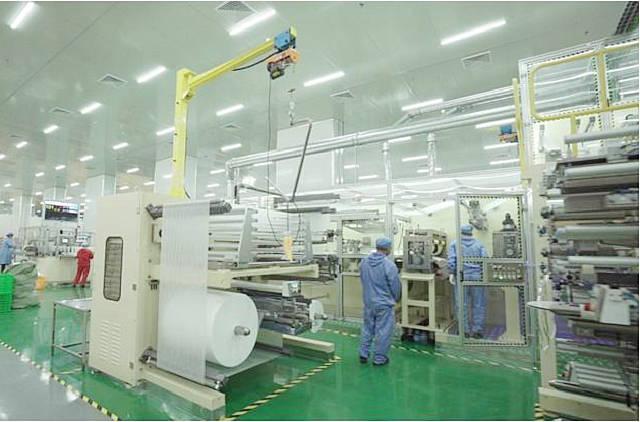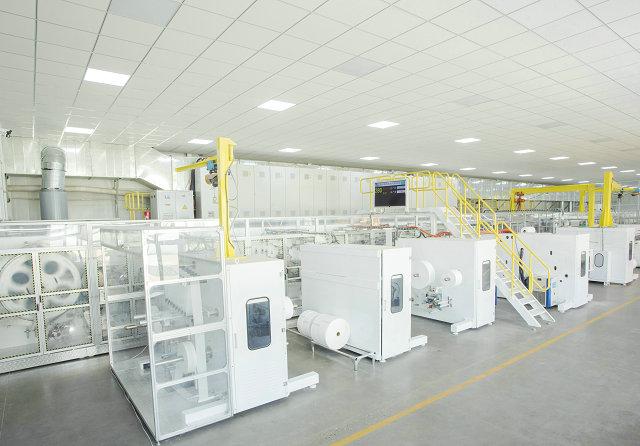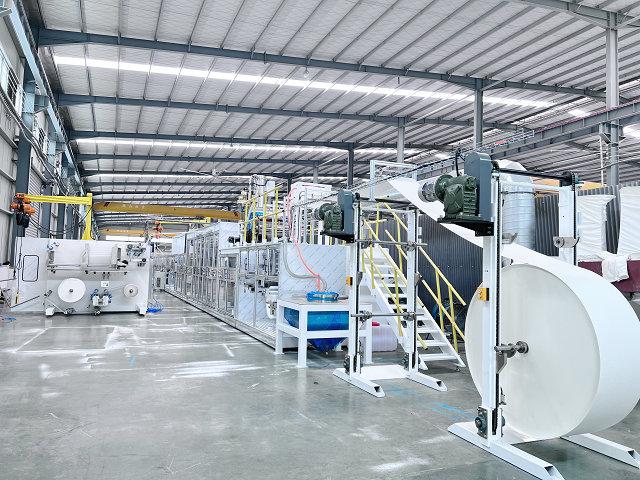Author:Haina Machinery Factory FROM:Diaper Machinery Manufacturer TIME:2024-11-14
As awareness of environmental issues grows, so does the demand for sustainable products. One area that has seen significant attention is feminine hygiene products, particularly sanitary pads. Traditional pads often contain plastic and other non-biodegradable materials, leading to substantial waste in landfills. This has prompted manufacturers to explore alternatives, including organic and biodegradable pads. A crucial question arises: can sanitary pad machines produce these eco-friendly options? This article will delve into the capabilities of sanitary pads, the materials used in organic and biodegradable pads, and the implications for sustainability in the feminine hygiene industry.
Fully Automatic Sanitary Pad Machine are designed to produce various types of menstrual products. These machines are capable of handling different materials and can be customized to meet specific production needs. The technology behind these machines has advanced significantly, allowing for greater efficiency and flexibility in manufacturing processes. They typically consist of multiple components, including raw material feeding systems, shaping molds, and packaging units, which work in tandem to create the final product.
The primary distinction between traditional and eco-friendly pads lies in the materials used. Organic pads are made from natural fibers such as cotton, which is grown without the use of synthetic pesticides or fertilizers. This not only makes them safer for the environment but also for users, reducing the risk of allergic reactions. On the other hand, biodegradable pads may incorporate materials like bamboo fiber, corn starch, or other plant-based substances that decompose more easily than conventional plastics.

sanitary pads can be adapted to produce organic and biodegradable pads. The key lies in the design and settings of the machines. For instance, machines can be calibrated to handle softer, more delicate materials that are typical of organic products. Additionally, the production process can be modified to ensure that minimal chemical treatments are applied, preserving the integrity of the organic materials.
While the potential for producing organic and biodegradable pads exists, several challenges remain. One major hurdle is sourcing high-quality organic materials. The supply chain for organic cotton and other natural fibers can be inconsistent, impacting production schedules and costs. Furthermore, manufacturers must ensure that the biodegradable materials used do not compromise the functionality and comfort of the pads, which are critical for consumer acceptance.

Consumer preferences are shifting towards sustainable products, driven by increasing awareness of environmental issues. As a result, there is a growing market for organic and biodegradable sanitary pads. Manufacturers who invest in adapting their machines to produce these eco-friendly options can tap into this lucrative market. Brands that prioritize sustainability often enjoy enhanced brand loyalty and a competitive edge, appealing to environmentally conscious consumers.

Several companies have successfully integrated eco-friendly practices into their manufacturing processes. For example, brands like Natracare and Organyc have established themselves as leaders in the organic pad market. They utilize specialized machines that can efficiently handle organic materials while maintaining high production standards. These case studies demonstrate that it is indeed possible for sanitary pad machines to produce sustainable products without sacrificing quality.
The future of Fully Automatic Sanitary Pad Machine production looks promising, with ongoing innovations aimed at enhancing the sustainability of menstrual products. Research into new biodegradable materials and improved manufacturing techniques could lead to even more efficient machines. Additionally, advancements in automation and digital technology may enable manufacturers to streamline their processes, reduce waste, and ultimately lower costs associated with producing eco-friendly pads.
In conclusion, Fully Automatic Sanitary Pad Machine can indeed produce organic and biodegradable pads, provided they are properly adapted to handle the materials involved. The shift towards sustainable feminine hygiene products is not only beneficial for the environment but also aligns with changing consumer preferences. By embracing innovation and addressing the challenges of sourcing and manufacturing, companies can contribute to a more sustainable future while meeting the demands of their customers. As the market continues to evolve, the role of technology in facilitating this transition will be paramount, paving the way for a greener approach to menstrual hygiene.
